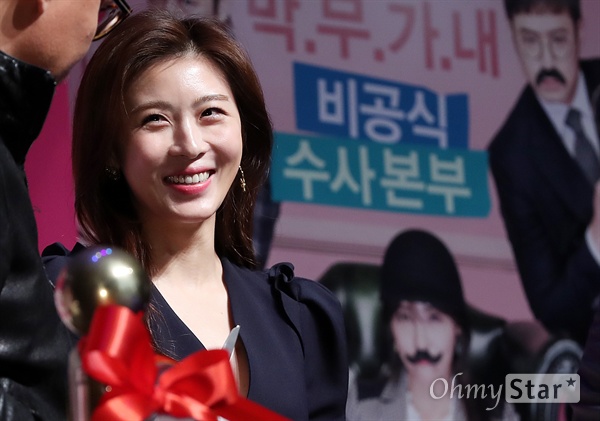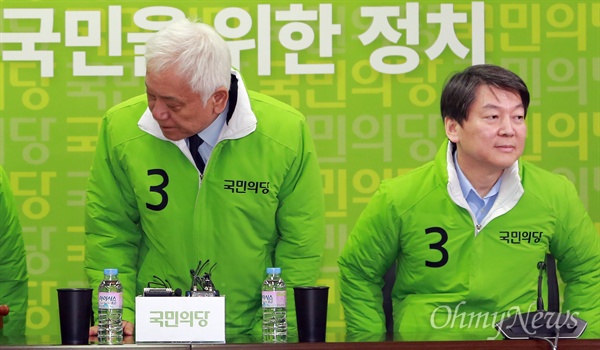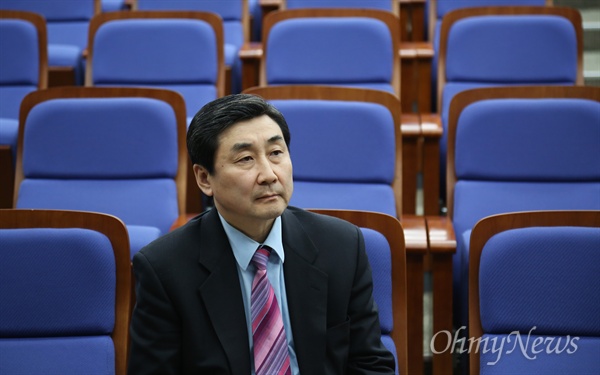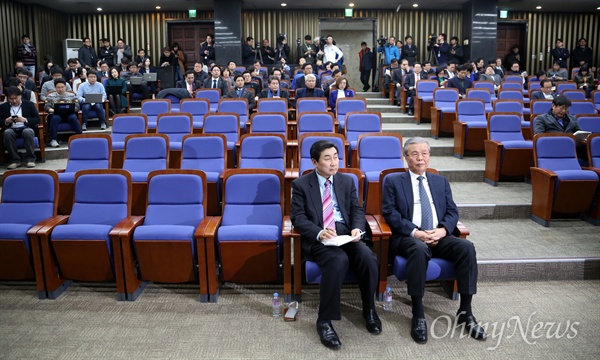INTJ PERSONALITY (“THE ARCHITECT”)
It’s lonely at the top, and being one of the rarest and most strategically capable personality types, INTJs know this all too well. INTJs form just two percent of the population, and women of this personality type are especially rare, forming just 0.8% of the population – it is often a challenge for them to find like-minded individuals who are able to keep up with their relentless intellectualism and chess-like maneuvering. People with the INTJ personality type are imaginative yet decisive, ambitious yet private, amazingly curious, but they do not squander their energy.
Nothing Can Stop the Right Attitude From Achieving Its Goal
With a natural thirst for knowledge that shows itself early in life, INTJs are often given the title of “bookworm” as children. While this may be intended as an insult by their peers, they more than likely identify with it and are even proud of it, greatly enjoying their broad and deep body of knowledge. INTJs enjoy sharing what they know as well, confident in their mastery of their chosen subjects, but owing to their Intuitive (N) and Judging (J) traits, they prefer to design and execute a brilliant plan within their field rather than share opinions on “uninteresting” distractions like gossip.
“You are not entitled to your opinion. You are entitled to your informed opinion. No one is entitled to be ignorant.”
A paradox to most observers, INTJs are able to live by glaring contradictions that nonetheless make perfect sense – at least from a purely rational perspective. For example, INTJs are simultaneously the most starry-eyed idealists and the bitterest of cynics, a seemingly impossible conflict. But this is because INTJ types tend to believe that with effort, intelligence and consideration, nothing is impossible, while at the same time they believe that people are too lazy, short-sighted or self-serving to actually achieve those fantastic results. Yet that cynical view of reality is unlikely to stop an interested INTJ from achieving a result they believe to be relevant.
In Matters Of Principle, Stand Like a Rock
INTJs radiate self-confidence and an aura of mystery, and their insightful observations, original ideas and formidable logic enable them to push change through with sheer willpower and force of personality. At times it will seem that INTJs are bent on deconstructing and rebuilding every idea and system they come into contact with, employing a sense of perfectionism and even morality to this work. Anyone who doesn’t have the talent to keep up with INTJs’ processes, or worse yet, doesn’t see the point of them, is likely to immediately and permanently lose their respect.
Rules, limitations and traditions are anathema to the INTJ personality type – everything should be open to questioning and reevaluation, and if they see a way, INTJs will often act unilaterally to enact their technically superior, sometimes insensitive, and almost always unorthodox methods and ideas.
This isn’t to be misunderstood as impulsiveness – INTJs will strive to remain rational no matter how attractive the end goal may be, and every idea, whether generated internally or soaked in from the outside world, must pass the ruthless and ever-present “Is this going to work?” filter. This mechanism is applied at all times, to all things and all people, and this is often where INTJ personality types run into trouble.
One Reflects More When Traveling Alone
INTJs are brilliant and confident in bodies of knowledge they have taken the time to understand, but unfortunately the social contract is unlikely to be one of those subjects. White lies and small talk are hard enough as it is for a type that craves truth and depth, but INTJs may go so far as to see many social conventions as downright stupid. Ironically, it is often best for them to remain where they are comfortable – out of the spotlight – where the natural confidence prevalent in INTJs as they work with the familiar can serve as its own beacon, attracting people, romantically or otherwise, of similar temperament and interests.
INTJs are defined by their tendency to move through life as though it were a giant chess board, pieces constantly shifting with consideration and intelligence, always assessing new tactics, strategies and contingency plans, constantly outmaneuvering their peers in order to maintain control of a situation while maximizing their freedom to move about. This isn’t meant to suggest that INTJs act without conscience, but to many Feeling (F) types, INTJs’ distaste for acting on emotion can make it seem that way, and it explains why many fictional villains (and misunderstood heroes) are modeled on this personality type.
INTJ STRENGTHS AND WEAKNESSES
INTJ Strengths

- Quick, Imaginative and Strategic Mind – INTJs pride themselves on their minds, taking every opportunity to improve their knowledge, and this shows in the strength and flexibility of their strategic thinking. Insatiably curious and always up for an intellectual challenge, INTJs can see things from many perspectives. INTJs use their creativity and imagination not so much for artistry, but for planning contingencies and courses of action for all possible scenarios.
- High Self-Confidence – INTJs trust their rationalism above all else, so when they come to a conclusion, they have no reason to doubt their findings. This creates an honest, direct style of communication that isn't held back by perceived social roles or expectations. When INTJs are right, they're right, and no amount of politicking or hand-holding is going to change that fact – whether it's correcting a person, a process, or themselves, they'd have it no other way.
- Independent and Decisive – This creativity, logic and confidence come together to form individuals who stand on their own and take responsibility for their own actions. Authority figures do not impress INTJs, nor do social conventions or tradition, and no matter how popular something is, if they have a better idea, INTJs will stand against anyone they have to in a bid to have it changed. Either an idea is the most rational or it's wrong, and INTJs will apply this to their arguments as well as their own behavior, staying calm and detached from these sometimes emotionally charged conflicts. INTJs will only be swayed by those who follow suit.
- Hard-working and determined – If something piques their interest, INTJs can be astonishingly dedicated to their work, putting in long hours and intense effort to see an idea through. INTJs are incredibly efficient, and if tasks meet the criteria of furthering a goal, they will find a way to consolidate and accomplish those tasks. However, this drive for efficiency can also lead to a sort of elaborate laziness, wherein INTJs find ways to bypass seeming redundancies which don't seem to require a great deal of thought – this can be risky, as sometimes double-checking one's work is the standard for a reason.
- Open-minded – All this rationalism leads to a very intellectually receptive personality type, as INTJs stay open to new ideas, supported by logic, even if (and sometimes especially if) they prove INTJs' previous conceptions wrong. When presented with unfamiliar territory, such as alternate lifestyles, INTJs tend to apply their receptiveness and independence, and aversion to rules and traditions, to these new ideas as well, resulting in fairly liberal social senses.
- Jacks-of-all-Trades – INTJs' open-mindedness, determination, independence, confidence and strategic abilities create individuals who are capable of doing anything they set their minds to. Excelling at analyzing anything life throws their way, INTJs are able to reverse-engineer the underlying methodology of most any system and apply the concepts that are exposed wherever needed. INTJs tend to have their pick of professions, from IT architects to political masterminds.
INTJ Weaknesses
- Arrogant – INTJs are perfectly capable of carrying their confidence too far, falsely believing that they've resolved all the pertinent issues of a matter and closing themselves off to the opinions of those they believe to be intellectually inferior. Combined with their irreverence for social conventions, INTJs can be brutally insensitive in making their opinions of others all too clear.
- Judgmental – INTJs tend to have complete confidence in their thought process, because rational arguments are almost by definition correct – at least in theory. In practice, emotional considerations and history are hugely influential, and a weak point for INTJs is that they brand these factors and those who embrace them as illogical, dismissing them and considering their proponents to be stuck in some baser mode of thought, making it all but impossible to be heard.
- Overly analytical – A recurring theme with INTJs is their analytical prowess, but this strength can fall painfully short where logic doesn't rule – such as with human relationships. When their critical minds and sometimes neurotic level of perfectionism (often the case with Turbulent INTJs) are applied to other people, all but the steadiest of friends will likely need to make some distance, too often permanently.
- Loathe highly structured environments – Blindly following precedents and rules without understanding them is distasteful to INTJs, and they disdain even more authority figures who blindly uphold those laws and rules without understanding their intent. Anyone who prefers the status quo for its own sake, or who values stability and safety over self-determination, is likely to clash with INTJ personality types. Whether it's the law of the land or simple social convention, this aversion applies equally, often making life more difficult than it needs to be.
- Clueless in romance – This antipathy to rules and tendency to over-analyze and be judgmental, even arrogant, all adds up to a personality type that is often clueless in dating. Having a new relationship last long enough for INTJs to apply the full force of their analysis on their potential partner's thought processes and behaviors can be challenging. Trying harder in the ways that INTJs know best can only make things worse, and it's unfortunately common for them to simply give up the search. Ironically, this is when they're at their best, and most likely to attract a partner.
INTJ PERSONALITY AND EMOTIONS
INTJs are defined by their confidence, logic, and exceptional decision-making, but all of this hides a turbulent underbelly – their emotions. The very notion of emotional expression is synonymous with irrationality and weakness to many INTJs, a display of poor self-governance and fleeting opinion that can hardly stand up to the enduring light of factual truth.
This mistrust of emotions is understandable, as Feeling (F) is the most weakly developed trait for INTJs – like any complex tool, skilled hands can use it to remarkable effect, while untrained hands make clumsy and dangerous work.
People with the INTJ personality type take pride in remaining rational and logical at all times, considering honesty and straightforward information to be paramount to euphemisms and platitudes in almost all circumstances. In many ways though, these qualities of coolness and detachment aren't the weapons of truth that they appear to be, but are instead shields designed to protect the inner emotions that INTJs feel. In fact, because their emotions are such an underdeveloped tool, INTJs often feel them more strongly than many overtly emotional types because they simply haven't learned how to control them effectively.
There Is Not a Truth Existing Which I Fear
This is a challenging paradigm for INTJs to manage, especially younger and more Turbulent types who are already less confident than they would like to appear. These feelings are contrary to INTJs' idea of themselves as paragons of logic and knowledge, and they may go so far as to claim they have no emotions at all. This does not mean that people with the INTJ personality type should be seen as, nor should they aspire to be, cold-blooded and insensitive geniuses living by the mantra that emotions are for the weak. INTJs must understand that this isn't the case, and isn't ever going to be.
More mature and Assertive INTJs find more useful ways to manage their feelings. While they will never be comfortable with a truly public display of emotions, INTJs can learn to use them, to channel them alongside their logic to help them achieve their goals. While seemingly contradictory, this can be done in several ways.
Firstly, INTJs are goal-oriented, with long-term ideas founded on sound logic. When something does cause an emotional reaction, good or bad, that energy can be used to further those goals, aiding rational and pre-determined plans. Secondly, emotions are figurative canaries in the coal mine, indicating that something is off even though logic can't see it yet. These feelings can help INTJs to use their logic to ask questions they may not have thought to ask. "This is upsetting. Why? What can be done to resolve it?"
Question With Boldness
In this way, emotions are not INTJs' way of addressing a decision, but rather an indication that a decision needs to be addressed. INTJ personalities' Thinking (T) trait acts as a protective big brother to their Feeling (F) trait – seeing that something has upset the less able sibling, it steps in to take action, letting logic do the talking and resolving the condition rather than complaining about its consequences.
There comes a time though, when logic is simply the wrong tool for the job, when there just isn't a rational solution to a problem, and it is in these situations that INTJs must use their Feeling (F) trait most clearly. INTJs would do well to practice this from time to time, or at least be aware of it, because however they may try, it is impossible to truly separate emotion from the decision-making process. The fact is that INTJs do feel, and deeply, and this makes them better, not worse.
INTJ RELATIONSHIPS
In romance, people with the INTJ personality type approach things the way they do with most situations: they compose a series of calculated actions with a predicted and desirable end goal – a healthy long-term relationship. Rather than falling head over heels in a whirlwind of passion and romance, INTJs identify potential partners who meet a certain range of pre-determined criteria, break the dating process down into a series of measurable milestones, then proceed to execute the plan with clinical precision.
In a purely rational world, this is a fool-proof methodology – but in reality, it ignores significant details that INTJs are likely to dismiss prematurely, such as human nature. INTJs are brilliantly intellectual, developing a world in their heads that is more perfect than reality. People entering this world need to fit this fantasy, and it can be incredibly difficult for INTJs to find someone up to the task. Needless to say, finding a compatible partner is the most significant challenge most INTJs will face in life.
Politeness Is Artificial Good Humor
Sentiment, tradition, and emotion are INTJs' Achilles Heel. Social standards like chivalry are viewed by INTJs as silly, even demeaning. The problem is, these standards have developed as a means of smoothing introductions and developing rapport, of managing expectations, the basis of personal relationships. INTJs' propensity for frank honesty in word and action tends to violate this social contract, making dating especially difficult for them.
As they mature, INTJs will come to recognize these factors as relevant, incorporating pace and emotional availability into their plans. But the meantime can be dangerous, especially for more Turbulent INTJs – if they are shot down too many times they may come to the conclusion that everyone else is simply too irrational, or simply beneath them intellectually. If cynicism takes hold, INTJs may end up falling into the trap of intentionally displaying intellectual arrogance, making solitude their choice rather than happenstance.
Always Remain Cool
The positive side of INTJs' “giving up” is that they are most attractive when they aren't trying to be attractive, working in a familiar environment where their confidence and intelligence can be seen in action. Allowing others to come to them is often INTJs' best strategy, and if they perceive a potential to the relationship, they will spare no effort in developing and maintaining stability and long-term satisfaction.
As their relationships develop, INTJs' partners will find an imaginative and enthusiastic companion, who will share their world and at the same time grant a huge degree of independence and trust. While INTJs may never be fully comfortable expressing their feelings, and may spend more time theorizing about intimacy than engaging in it, they can always be relied upon to think out a mutually beneficial solution to any situation.
INTJs seek strong, deep relationships, and trust their knowledge and logic to ensure that their partner is satisfied, both intellectually and physically.
But when it comes to emotional satisfaction, INTJs are simply out of their element. Not every partner has the sort of fun INTJs do in addressing conflicts and emotional needs as puzzles to be analyzed and solved. Sometimes emotions need to be expressed for their own sake, and putting every outburst under the microscope isn't always helpful. If this becomes habit, or INTJs think it may, they are capable of simply ending the relationship, rather than dragging things out.
Truth and Morality
INTJs are bewilderingly deep and intelligent people, bringing stability and insight into their romantic relationships. They prize honest, open communication, and all factors of the relationship are open to discussion and change, but this must be reciprocated. INTJs do what they think is right, and sometimes that comes across as cold – it's important to know that INTJs don't make these decisions lightly. They spend a tremendous amount of time and energy trying to understand why and how things go wrong, especially if they've devoted themselves to the relationship, and they certainly hurt deeply when things fall apart.
The challenge is finding partners who share those same values – though Intuitive (N) types are uncommon, they may be a must for many INTJs, as sharing this trait creates an immediate sense of mutual belonging. Having one or two balancing traits, such as Extraversion (E), Feeling (F), or Prospecting (P) can help to keep a relationship dynamic and growth-oriented by keeping INTJs involved with other people, in touch with their emotions, and open to alternate potentials.
INTJ FRIENDS
People with the INTJ personality type tend to have more success in developing friendships than they do with romantic relationships, but they none-the-less suffer from many of the same setbacks, substituting rational processes for emotional availability. This intellectual distance tends to go both ways, making INTJs notoriously difficult to read and get to know, and making INTJs not want to bother reading anyone they think isn't on their level. Overcoming these hurdles is often all but impossible without the sort of instant connection made possible by sharing the Intuitive (N) trait.
No Person Will Complain for Want of Time Who Never Loses Any
INTJs tend to have set opinions about what works, what doesn't, what they're looking for, and what they're not. These discriminating tastes can come across as arrogant, but INTJs would simply argue that it's a basic filtering mechanism that allows them to direct their attentions where they will do the most good. The fact is that in friendship, INTJs are looking for more of an intellectual soul mate than anything else, and those that aren't prepared for that kind of relationship are simply boring. INTJs need to share ideas – a self-feeding circle of gossip about mutual friends is no kind of social life for them.
INTJs will keep up with just a few good friends, eschewing larger circles of acquaintances in favor of depth and quality.
Further, having more than just a few friends would compromise INTJs' sense of independence and self-sufficiency – they gladly give up social validation to ensure this freedom. INTJs embrace this idea even with those who do fit into their social construct, requiring little attention or maintenance to remain on good terms, and encouraging that same independence in their friends.
When it comes to emotional support, INTJs are far from being a bastion of comfort. They actively suppress their own emotions with shields of rationality and logic, and expect their friends to do the same. When emotionally charged situations do come about, INTJs may literally have no clue how to handle them appropriately, a glaring contrast from their usual capacity for decisive self-direction and composure.
But Friendship Is Precious
When they are in their comfort zone though, among people they know and respect, INTJs have no trouble relaxing and enjoying themselves. Their sarcasm and dark humor are not for the faint of heart, nor for those who struggle to read between the lines, but they make for fantastic story-telling among those who can keep up. This more or less limits their pool of friends to fellow Analysts (NT) and Diplomat (NF) types, as Observant (S) types' preference for more straightforward communication often simply leaves both parties frustrated.
It's not easy to become good friends with INTJs. Rather than traditional rules of social conduct or shared routine, INTJs have exacting expectations for intellectual prowess, uncompromising honesty and a mutual desire to grow and learn as sovereign individuals. INTJs are gifted, bright and development-oriented, and expect and encourage their friends to share this attitude. Anyone falling short of this will be labeled a bore – anyone meeting these expectations will appreciate them of their own accord, forming a powerful and stimulating friendship that will stand the test of time.
INTJ PARENTS
Parenting, like so many other person-to-person relationships, is a significant challenge for INTJs. Being so heavily invested in rational thought, logic, and analyzing cause and effect, INTJs are often unprepared for dealing with someone who hasn't developed these same abilities who they can't simply walk away from. Luckily, INTJs are uniquely capable of committing to a long-term project, especially one as meaningful as parenthood, with all the intellectual vigor they can muster.
I Hope Our Wisdom Will Grow With Our Power...
First and foremost, INTJ parents will likely never be able to deliver the sort of warmth and coddling that stereotypes say they should. INTJs are rational, perfectionistic, often insensitive, and certainly not prone to overt displays of physical affection – it will take a clear and conscious effort on their part to curb and adapt these qualities to their children's needs, especially in the younger years. If they have an especially sensitive child, INTJs risk inadvertently trampling those sensitivities or coming across as cold and uncaring.
Even less sensitive children will need emotional support from time to time, especially as they approach adolescence – INTJs, even more so than other Analyst (NT) types, struggle to manage their own emotions in a healthy way, let alone others'. As a result, INTJs tend to avoid “unproductive” emotional support, instead taking a solutions-based approach to resolving issues. This is where INTJs are strongest – assessing a dilemma to find the underlying cause and developing a plan to solve the problem at its source.
INTJ parents don't just tell their children what to do, though – they prompt them, make them use their own minds so they arrive at the same conclusions, or better ones still.
INTJs also recognize that life is often the best teacher, and they will tend to be fairly liberal, allowing their children to have their own adventures and make their own decisions, further developing these critical thinking skills. This isn't to say that INTJs parents are lenient – far from it – rather, they expect their children to use their freedom responsibly, and often enough the weight of this expectation alone is enough to lay out understood ground rules. When they need to though, INTJ parents will communicate openly and honestly with their children, believing that knowing the truth is better than not knowing, or worse yet, simply being wrong.
...And Teach Us That the Less We Use Our Power, the Greater It Will Be
If their children are receptive to this approach, INTJ parents will find themselves respected and trusted. INTJs are excellent communicators when they want to be, and will frame problems as opportunities for personal growth, helping their children to establish their own brand of rational thinking and independent problem-solving skills to be applied to more and more complex situations as they grow, building their confidence as they make their own way. INTJs' ultimate goal as a parent is to ensure that their children are prepared to deal with whatever life throws their way.
All this is the exertion of INTJs' core philosophy of intelligent self-direction, and in this way they try to mold their children in their own image, working to create capable adults who can go on to use their own minds, solve their own problems, and help their own children in the same way when the time comes. INTJs understand that this can't happen if they shield their children from every source of ill and harm, but believe that if they give their children the right tools, they won't have to..
INTJ CAREERS
Professional competence is often the area in which INTJs shine most brilliantly. Their capacity for digesting difficult and complex theories and principles and converting them into clear and actionable ideas and strategies is unmatched by any other type. INTJs are able to filter out the noise of a situation, identifying the core thread that needs to be pulled in order to unravel others' messes so that they can be rewoven into something at once beautifully intricate and stunningly simple in its function.
The real challenge for INTJs is that in order for their innovative (and to less insightful individuals, seemingly counter-intuitive) ideas to be heard, they need to have a friendly ear to bend, and developing an amiable rapport with authority figures is not exactly in INTJs' list of core strengths. In their early careers, INTJs will often have to suffer through menial tasks and repeated rejections as they develop their abilities into a skillset that speaks for itself.
INTJs will often find ways to automate routine and mind-numbing tasks, and as they progress, their natural confidence, dedication, and creative intelligence will open the doors to the increased complexity and freedom they crave.
Where's My Drawing Board?
INTJs tend to prefer to work alone, or at most in small groups, where they can maximize their creativity and focus without repeated interruptions from questioning colleagues and meetings-happy supervisors. For this reason INTJs are unlikely to be found in strictly administrative roles or anything that requires constant dialogue and heavy teamwork. Rather, INTJs prefer more "lone wolf" positions as mechanical or software engineers, lawyers or freelance consultants, only accepting competent leadership that helps in these goals, and rejecting the authority of those who hold them back.

Their independent attitude and tireless demand for competence mean that INTJs absolutely loathe those who get ahead by seemingly less meritocratic means like social prowess and political connections. INTJs have exceptionally high standards, and if they view a colleague or supervisor as incompetent or ineffective, respect will be lost instantly and permanently. INTJs value personal initiative, determination, insight and dedication, and believe that everyone should complete their work to the highest possible standards – if a schmoozing shill breezes through without carrying their own weight, they may find INTJs' inventiveness and determination used in a whole new capacity as the winds turn against them.
Timid Men Prefer the Calm
As their careers progress further and their reputation grows, so will the complexity of INTJs' tasks and projects. INTJs demand progress and evolution, new challenges and theories, and they often accomplish this by pushing into more active strategic positions. While they don't care for the spotlight, INTJs do enjoy controlling their ideas, and will often expand into low-profile but influential roles as project managers, system engineers, marketing strategists, systems analysts, and military strategists.
But really, INTJs' vision, creativity, and competence in executing their plans make them viable in just about any career that requires them to think about what they're doing. While some careers, such as low-level sales and human resources, clearly do not play to their strengths, INTJs are able to build a niche into just about any institution, including their own, that they put their minds to.
INTJ IN THE WORKPLACE
Above all else, INTJs want to be able to tackle intellectually interesting work with minimal outside interference, no more, no less. Time-consuming management techniques like trust-building getaways, progress meetings, and drawn-out, sandwiched criticisms are only going to annoy INTJs – all they need, be they subordinate, colleague, or manager, is to meet their goals with the highest standard of technical excellence and to be surrounded by, if anyone at all, people who share those values.
On paper this makes them appear to be exemplary employees, and in many ways they are, but there are many types, especially those with a combination of the Observant (S) and Feeling (F) traits, who will find a work (or any other) relationship with INTJs extremely challenging. INTJs have a fairly strict code of conduct when it comes to their work, and if they see coworkers valuing social activities and "good enough" workmanship over absolute excellence, it will be a turbulent environment. For this reason, INTJs tend to prefer to work in tight, like-minded groups – a group of one, if necessary.
INTJ Subordinates
INTJs are independent people, and they quickly become frustrated if they find themselves pushed into tightly defined roles that limit their freedom. With the direction of a properly liberal manager, INTJs will establish themselves in a position of expertise, completing their work not with the ambition of managerial promotion, but for its own intrinsic merit. INTJs require and appreciate firm, logical managers who are able to direct efforts with competence, deliver criticism when necessary, and back up those decisions with sound reason.
Note that it is INTJs' expectations of their managers that are being defined here, and not the other way around, as with some other personality types. Titles mean little to INTJs – trust and respect are earned, and INTJs expect this to be a two way street, receiving and delivering advice, criticisms and results. INTJs expect their managers to be intelligent enough and strong enough to be able to handle this paradigm. A silent INTJ conveys a lack of respect better than all their challenges ever will.
INTJ Colleagues
Active teamwork is not ideal for people with the INTJ personality type. Fiercely independent and private, INTJs use their nimble minds and insight to deflect personal talk, avoid workplace tension, and create situations where they aren't slowed down by those less intelligent, less capable, or less adaptable to more efficient methods. Instead, they will likely poke fun by forcing them to read between the lines and making them deal alone with work that could have been easier if they'd only taken INTJs' suggestions.
INTJs are brilliant analysts, and will likely gather a small handful of trusted colleagues to involve in their brainstorming sessions, excluding those who get too hung up on details, or who otherwise have yet to earn their respect. But more likely, INTJs will simply take the initiative alone – INTJs love embracing challenges and their consequent responsibilities, and their perfectionism and determination usually mean that the work comes out clean and effective, affording INTJs the twin joys of solitude and victory.
INTJ Managers
Though they may be surprised to hear it, INTJs make natural leaders, and this shows in their management style. INTJs value innovation and effectiveness more than just about any other quality, and they will gladly cast aside hierarchy, protocol and even their own beliefs if they are presented with rational arguments about why things should change. INTJs promote freedom and flexibility in the workplace, preferring to engage their subordinates as equals, respecting and rewarding initiative and adopting an attitude of "to the best mind go the responsibilities", directing strategy while more capable hands manage the day-to-day tactics.
But this sort of freedom isn't just granted, it's required – those who are accustomed to just being told what to do, who are unable to direct themselves and challenge existing notions, will have a hard time meeting INTJs' extremely high standards. Efficiency and results are king to INTJs, and behaviors that undermine these conditions are quashed mercilessly. If subordinates try to compensate for their weakness in these areas by trying to build a social relationship with their INTJ managers, on their heads be it – office gossip and schmoozing are not the way into INTJs' hearts – only bold competence will do.
INTJ PERSONALITY – CONCLUSION
Few personality types are as mysterious and controversial as INTJs. Possessing intellect and strategic thinking that allow them to overcome many challenging obstacles, INTJs have the ability to both develop and implement a plan for everything, including their own personal growth.
Yet INTJs can be easily tripped up in areas where careful and rational thinking is more of a liability than an asset. Whether it is finding (or keeping) a partner, making friends, reaching dazzling heights on the career ladder or adapting to the unpredictable, INTJs need to put in a conscious effort to develop their weaker traits and additional skills.
What you have read so far is just an introduction into the complex concept that is the INTJ personality type. You may have muttered to yourself, "wow, this is so accurate it's a little creepy" or "finally, someone understands me!" You may have even asked "how do they know more about me than the people I'm closest to?"
This is not a trick. You felt understood because you were. We've studied how INTJs think and what they need to reach their full potential. And no, we did not spy on you – many of the challenges you've faced and will face in the future have been overcome by other INTJs. You simply need to learn how they succeeded.
But in order to do that, you need to have a plan, a personal roadmap. The best car in the world will not take you to the right place if you do not know where you want to go. We have told you how INTJs tend to behave in certain circumstances and what their key strengths and weaknesses are. Now we need to go much deeper into your personality type and answer "why?", "how?" and "what if?"
This knowledge is only the beginning of a lifelong journey. Are you ready to learn why INTJs act in the way they do? What motivates and inspires you? What you are afraid of and what you secretly dream about? How you can unlock your true, exceptional potential?
Our premium profiles provide a roadmap towards a happier, more successful, and more versatile YOU! They are not for everyone though – you need to be willing and able to challenge yourself, to go beyond the obvious, to imagine and follow your own path instead of just going with the flow. If you want to take the reins into your own hands, we are here to help you.





























 Now Pillemer has followed up with "
Now Pillemer has followed up with "













 세례성사
세례성사
